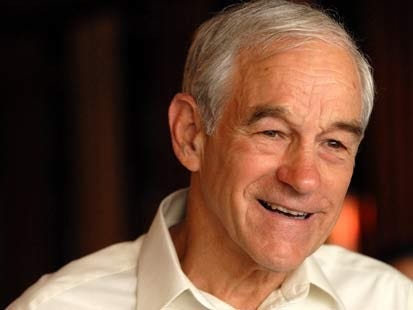One of the many reasons philosophy is completely insane: Lots of things that are brutally, intuitively true according to human experience turn out to be difficult of impossible to back up logically. Philosophers are still arguing about whether things in the universe are actually real, and a lot of them have come to the conclusion that, no, they aren't. (When asked what he thought about this, Samuel Johnson, author of the dictionary, replied by giving the nearest rock a swift kick while shouting "I refute it thus!")
One of the most enduring and depressing philosophical quagmires is the issue of whether or not people actually have free will. It's such a tough debate because although free will is the easiest thing in the world to demonstrate, it turns out to be impossible to back up. If you take a class on the free will issue, 95% of it will be spent talking about the arguments that debunk the existence of free will, while the only argument that really supports it consists of waving your hand around in the air and saying "See?" (Incidentally, every single class on this topic will have someone do exactly this at some point, and you are always justified in kicking that person in the face and arms.)
Let's take this back to the beginning: Back in pre-Socratic Greece (the era that started roughly in dinosaur times and ended with Socrates) there were two rival philosophers named Heraclitus and Parmenides who argued about the mechanics of the world, and because this was the beginning of philosophy, the topic was a pretty fundamental one. Heraclitus thought that everything in reality was constantly changing, the universe is in total flux, and nothing ever stays the same from one moment to the next. His was the fairly well known statement that "you can't step into the same river twice." The second time that you step into that river, you're stepping into different water because the water you stepped in the first time has flowed downriver. For Heraclitus, everything worked on the same principle - the world was made of fire, he said; always moving, always changing form, never staying the same. And this is kind of the way we intuitively see the world every day - it's unpredictable! The weeds in your garden pop in and out of existence all the time no matter how much you poison them. Nobody saw Hurricane Katrina coming, or that little old blind lady who ran a red light and struck the side of your car in a busy intersection. The philosophy of Heraclitus can basically be boiled down to "shit happens."
Parmenides completely disagreed, and his philosophy is was a lot less elegant and a lot more at odds with our usual understanding of reality. Parmenides believed that nothing moves. Change, he thought, was just an elaborate illusion of the human mind. If Heraclitus' world was made of fire, Parmenides' was made of stone. His perception of the universe was that it was just a big old brick of stuff. One of the ways he argued this was to point out that nothing ever comes into existence or is destroyed, not really. When you bake a cake, for example, it's not really that you now have a cake that didn't exist before. It's that the cake used to be (and still is, technically) flour, eggs, milk and sugar. And after you eat the cake, it's not that there's no cake anymore, the cake is still there inside your arteries and on your love handles.
Let's consider which one science agrees with. Hint: It's not Heraclitus. There's been a pretty rock-solid consensus since the time of Isaac Newton that energy can't be created or destroyed, and so matter can't be created or destroyed either, it can only change how it looks. Every single molecule that makes up the universe came into existence at the big bang, and it's still going to be there after the very last star blinks out with a puff of radiation. The fact that it currently looks like trees and bicycles and cake is just the way those molecules are currently clumped together. But those molecules didn't arrange themselves that way consciously - that's just literally the way they fell after whizzing around the universe and being shot out of stars and whatnot for the past umpteen billion years. The universe, as currently understood by science, is the world's biggest game of billiards. Atoms fly around, crash into each other, fall into heaps and break apart, and given enough time, you see a particular clump of atoms that you label "cake."
"But wait!" you scream, "That cake didn't come together by chance! I made it! Because I'm so hungry and so fat that my life has lost all meaning for me." Right there, that's the kicker. That's the heart of the free will debate. Because although it seems you chose to bake that cake, you are a part of that billiard-ball universe. You are, yourself, a clump of atoms that fell together, and your ability to move at all is caused by the interactions and reactions between those particles. Did you really choose to make the cake or did the universe choose for you?
Fatalism and Determinism
There are two companion theories in the no-free-will camp called determinism and fatalism. Fatalism is a statement about the nature of time, and in particular, the future. It suggests that the future is set in stone in the same way that the past is. If you could fly up past the fourth dimention and see time as kind of a flat surface, you'd see every event from the beginning of time to the end of time just sitting there waiting to happen. The present is just drifting through it, and we're just spectators. It's kind of like waiting for a large image of a topless Olivia Wilde to load on a slow dial-up internet connection. The image is there and it's going to look a certain way when it loads, but it's just appearing slowly pixel-by-pixel as it squeezes its way through your Soviet-era internet technology. It's not suddenly and unexpectedly going to become a picture of a topless Jack Black. To the fatalist, the universe is kind of loading in the same way, one second per second, and it's fated to look a certain way when it's done. You can't do anything about it.
Determinism is a statement about cause and effect. It asserts that everything, without exception, operates on those billiard-ball mechanics. Every event is directly caused by a prior event. The baseball bounces off into the stadium because it was hit by a baseball bat. The kitten is running in circles because you set it on fire. To the determinist, there's no event in the universe that ever occurs spontaneously and without cause, not even a little bit. A cake won't just appear in your living room unless somebody made it.
(Note: These positions go together nicely, but it's possible to agree with one and not the other. It's just difficult. A fatalistic non-determinist would argue that although the future is set, not all events along the timeline are caused by something. A cake might appear in your living room one day, and it's totally random, but it's still going to happen. A deterministic non-fatalist will argue that although every event is determined and the future is predictable, the future doesn't actually exist yet. Which is really only an issue if you are a time-traveler.)
These theories are both free-will killers. Why? Because the idea of free will is based on the idea that you made a decision freely and you weren't forced to do so by any external factor. The fact that you were hungry and craving cake didn't necessitate that you would inevitably bake a cake. You could just as easily have made a salad to assuage your feelings of guilt. Then again, you DID bake a cake, didn't you. While you were fully aware of the fact that you could have made a salad instead, you baked that cake and you cried while eating it. Did you really have a choice, or was the "choice" to make a salad no more real than the "choice" to morph into Matthew McConaughey, thus averting the requirement for future salads?
The problem of fatalism goes back to Aristotle. He's the guy who came up with a lot of the rules of logic that we use to understand the universe today. One of his most important theories, though it seems pretty obvious, is that a statement is either true, or it's false. If I say "John F. Kennedy was murdered by Kevin Bacon," that's either true or false. There's no sort of murky grey area there. Even if nobody knows what really happened on that fateful day in Dallas, it's an objective fact that either Kevin Bacon murdered JFK, or he didn't. And that truth value can never change. If it was true in 1963, it's true now, it will be true 30 years from now, and it will be true when the heat death of the universe spits the last decaying photon into the dead void.
Still with me? Okay, here's the kicker: When I say "You will bake a cake tonight," is that statement true, or false? It's one or the other, right? It doesn't matter if you don't know yet, because your awareness of the facts doesn't change the truth. You may not KNOW if it's true, but you're going to find out eventually.
Understand, none of this is about human willpower. You might decide, in defiance of this article, to go ahead and make the healthiest goddamn salad ever constructed. But that doesn't mean you escaped fatalism. That just means that my statement turned out to be false. You will not bake a cake tonight. And if that's a fact now, then it was a fact yesterday, and it was a fact at the moment of the Big Bang. To say that you CHOSE not to bake a cake is to break Aristotle's fundamental rule of logic - it's suggesting that, at some point, you turned a true statement into a false statement with the sheer force of your will.
Aristotle did provide us with a possible escape from this predicament - he wondered whether it's possible that something CAN be neither true nor false. Namely, whether statements have no truth value until the event actually occurs. So, say, the statement "you will bake a cake tonight" may not have any actual meaning until tonight, when a cake is or is not actually produced. The problem with that is, after you break down from the pressure of this philosophical interrogation and finally bake a huge cake and shove great handfuls into your quivering jowls, can I afterward say that I was right? How can the status of the cake still be unconfirmed while the cake sits there, plain as day?
Determinism adds another layer of existential dread to this predicament because, if fatalism makes you a puppet, then determinism is the puppeteer. It suggests that, not only are your future actions set in stone, not only is every fact about your future true or false today, but every one of those actions, from getting married to scratching your arse, is fully predictable right now. In the same way that a skilled snooker player can predict and control exactly where a series of billiard balls will go when she hits them in a certain way, so too can a skilled mentalist predict (and, as logic will conlude, control) everything you're going to do today and tomorrow and for the rest of your life. You're just as programmable as the computer you're reading this on.
Alternatives to Fatalism and Determinism
In case you've made the (completely predetermined and inevitable) decision to leap off a cliff now that philosophy has rendered your existence meaningless, take comfort in the fact that there are arguments to be made against the fatalistic and deterministic theories of the universe.
The fatalist philosopher Richard Taylor imagined the future in the same way as we imagine the past - I.e. We are all "fatalists" when it comes to the past. Nobody believes that facts about the past are fluid or subject to change. No matter what we KNOW about the past, it retains some kind of truth value. If Kevin Bacon killed JFK, then Kevin Bacon will still have killed JFK tomorrow. There's no point in the future when the killer of JFK will have been someone else. The past is locked in, which means it's knowable. If I ask you whether an ant walked across the back of your chair five minutes ago, it's the same as asking whether an ant will walk across the back of your chair five minutes from now - you don't know the answer to either question, but both are either true or false, and both could be confirmed if someone told you the answer. They are both knowable.
But there IS a difference, isn't there? If I told you that, five minutes from now, an ant is going to run across the back of your chair, then you could kill it before it gets there. A fatalist could still say that I was simply wrong, and that the ant was always fated to die when it did. But then, if I had said that no ant would run across your chair, then you could damn well go out to the garden, find an ant, and prove me wrong again. It seems that the future isn't just unknown, but literally unknowable, because the very fact that I know something about the future makes that fact false. Likewise, I can't actually predict the future even if I know the trajectory of every billiard-ball-particle in the universe, because the very act of me making those predictions is throwing the whole system out of whack.
The relationship between knowledge and the state of reality has an interesting scientific basis. The once-pretty-solid doctrine of determinism was given a pretty rude jolt when people started investigating "quantum physics," the science of atoms, molecules, and particles even smaller. Once you get to that level, you start noticing that reality becomes blurry. We start to lose the distinction between very clear categorically defined concepts in our lived world, like energy and matter, or particle and wave. They start to blur into each other as though God suddenly got really drunk and lost track of his concentration. In quantum physics, certain things start looking less determined and more chaotic.
For example, you may have heard of radioactive substances having something called a "half-life." Carbon-14, for example, has a half-life of around 5730 years. What this means is that an atom of Carbon-14 has a 50% chance of disappearing (decaying) every 5730 years. Think of it as a coin flip - flip a coin once per second, and every second it has a 50% chance of coming up heads. But there's some contention within quantum physics about the degree to which the decay of an atom can be "determined." The line between determinism and randomness is blurry down there, like everything else.
Now the question that philosophers have is that, if there are events happening at the quantum scale that are truly random, in the sense that they are not determined by prior events but just go about their business at will, then doesn't this close the lid on determinism in the way that we understand it? Can't this open us up to the possibility that, maybe, the human brain or soul or whatever operates by the rules of quantum physics, albeit scaled upward to the lived world, so that it may be possible to escape determinism and be free of its billiard-ball tyranny? Nobody has actually figured out a way that this actually works, by the way. It's just conjecture, and an avenue that philosophers may consider taking in order to salvage the concept of "free will," or as it is called in philosophy, "libertarianism," not to be confused with the politics of Ron Paul.
But there's a big trap here. Were any of you savvy enough to spot it? While hopefully clinging to the tentative shreds of science's attempt to restore meaning to your life, did you see the problem? It's this: It seems we have two alternatives. Either events in the universe are determined and set in stone, like Parmenides' block universe, or they are random and fluid, like Heraclitus' fire. Either way, where's the damn free will?
Are you going to bake a cake tonight? Either the answer is predetermined and unavoidable, or it's random and uncontrollable. You don't get to choose, either way. Is there a third option set apart from both determinism and random, some complicated way in which libertarianism might plausibly exist? As you've gathered, that's a very difficult question for philosophy to answer.
Nevertheless, there may be a good-enough compromise. The scary thing about the prospect of not having any free will is that your life is predictable. You can type some equation into a computer and it will tell you (or someone else) exactly how the rest of your life will play out. But is that really true? Consider how people scoff at weather reports for their notorious inaccuracy. The weather bureau can release a storm warning and then cancel that warning within an hour, and that's not even mentioning the week-long forecast. Why are weathermen so stupid? Don't they have computers that can figure this stuff out?
As it turns out, the weather is an insanely complicated system. Predicting the weather accurately requires us to know the temperature, humidity, and a thousand other factors affecting every inch of the entire atmosphere of the world at any given moment. We can only ever know a fraction of that information, and very roughly, so it's actually pretty amazing that meteorologists are able to give you that information at all, you ingrates.
As systems become more complicated, more cluttered with data, then the means of predicting them has to scale up in turn. There's a possibility that one day we may have computers powerful enough to predict the weather, but what about a human life? There is some speculation that, at a certain level of complexity, the means with which we can predict the future become unfeasibly complicated. By that I mean, in order to predict whether you bake a cake tonight or not, somebody would need such an incredibly powerful computer, such a near-omniscient amount of data about the state of the universe at any given second, that it would require a computer bigger than the universe.
At this point, while your life may be technically deterministic, it is effectively impossible by the laws of science to ever predict. And that, for some, makes it much easier to sleep at night.














